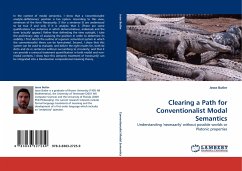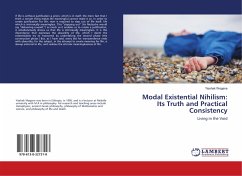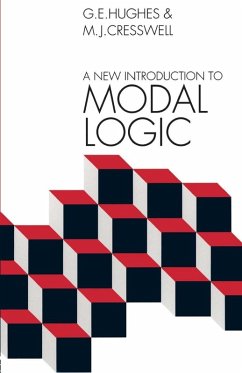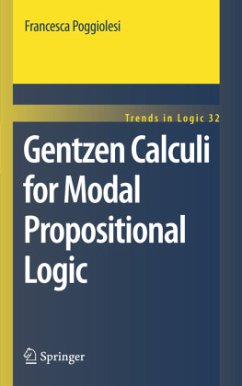
Clearing a Path for Conventionalist Modal Semantics
Understanding ''necessarily'' without possible worlds or Platonic properties
Versandkostenfrei!
Versandfertig in 6-10 Tagen
52,99 €
inkl. MwSt.

PAYBACK Punkte
26 °P sammeln!
In the context of modal semantics, I show that a 'conventionalist analytic-deflationary' position is live option. According to this view, sentences of the form 'Necessarily, S' (for a sentence S) are understood to be true if and only if it is analytic that S. (There are some qualifications for sentences in which demonstratives, indexicals and the term 'actually' appear.) Rather than defending the view outright, I take the preliminary step of assessing the position in order to determine its viability. I first sketch the outline of a generic semantical system in which the conventionalist thesis ...
In the context of modal semantics, I show that a 'conventionalist analytic-deflationary' position is live option. According to this view, sentences of the form 'Necessarily, S' (for a sentence S) are understood to be true if and only if it is analytic that S. (There are some qualifications for sentences in which demonstratives, indexicals and the term 'actually' appear.) Rather than defending the view outright, I take the preliminary step of assessing the position in order to determine its viability. I first sketch the outline of a generic semantical system in which the conventionalist thesis can be formulated. Second, I show that this system can be used to evaluate, and deliver the right results for, both de dicto and de re sentences without succumbing to circularity; and that it can provide a univocal treatment quantification in both modal and non-modal contexts. I show how this semantic treatment of 'necessarily' can be integrated into a Davidsonian compositional meaning theory












